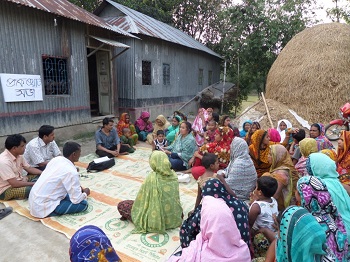LESSON
Lesson Learned: Empowering Local CSOs in Yemen through Participation in Local Governance
Project staff had a good relationship with ministry officials which should lay the groundwork for future collaboration. The few weaknesses in project management may largely be ascribed to difficult logistical conditions, which limited the capacity to coordinate between the capital, Sana’a and the governorates. In the context of Yemen in the project period, the quality of management was impressive. The project management was pro-active and internal accountability mechanisms were appropriate.
Project Partner
Humanitarian Forum - Yemen
Project Description
The project aimed to address the problem of weak local civil society organizations [CSOs] and the general lack of collaboration between private and public development stakeholders in Yemen. Specifically, the project sought to improve the capacity of local CSOs and strengthen partnerships between local CSOs and the government at the local and national levels in order to effectively address emergencies and respond to humanitarian situations. The project was implemented in four governorates of Yemen (Sana’a, Aden, Hadramawt and Hudaydah ) and in three pilot pilot districts (Ghayl Ba Wazir in Hadramawt, Al Boreqah in Aden, and Al Mansuriyah in Hudaydah), while advocacy at national level was conducted with the authorities in Sana’a. The project was very relevant, in that it identified genuine needs at community level and in terms of civil society capacity building and took a two-pronged approach (that was appropriate to the situation in Yemen. The project could not have anticipated the near-failure of central government that Yemen has experienced since 2014. However the project strategy of working with local authorities and civil society stakeholders at community level was relevant to the reinforcement of local governance, irrespective of the national political situation. Some significant groundwork has been carried out in this respect, which may bear fruit if a functional government is re-established.
Report
Evaluation Date
May 2015
Theme
Country
